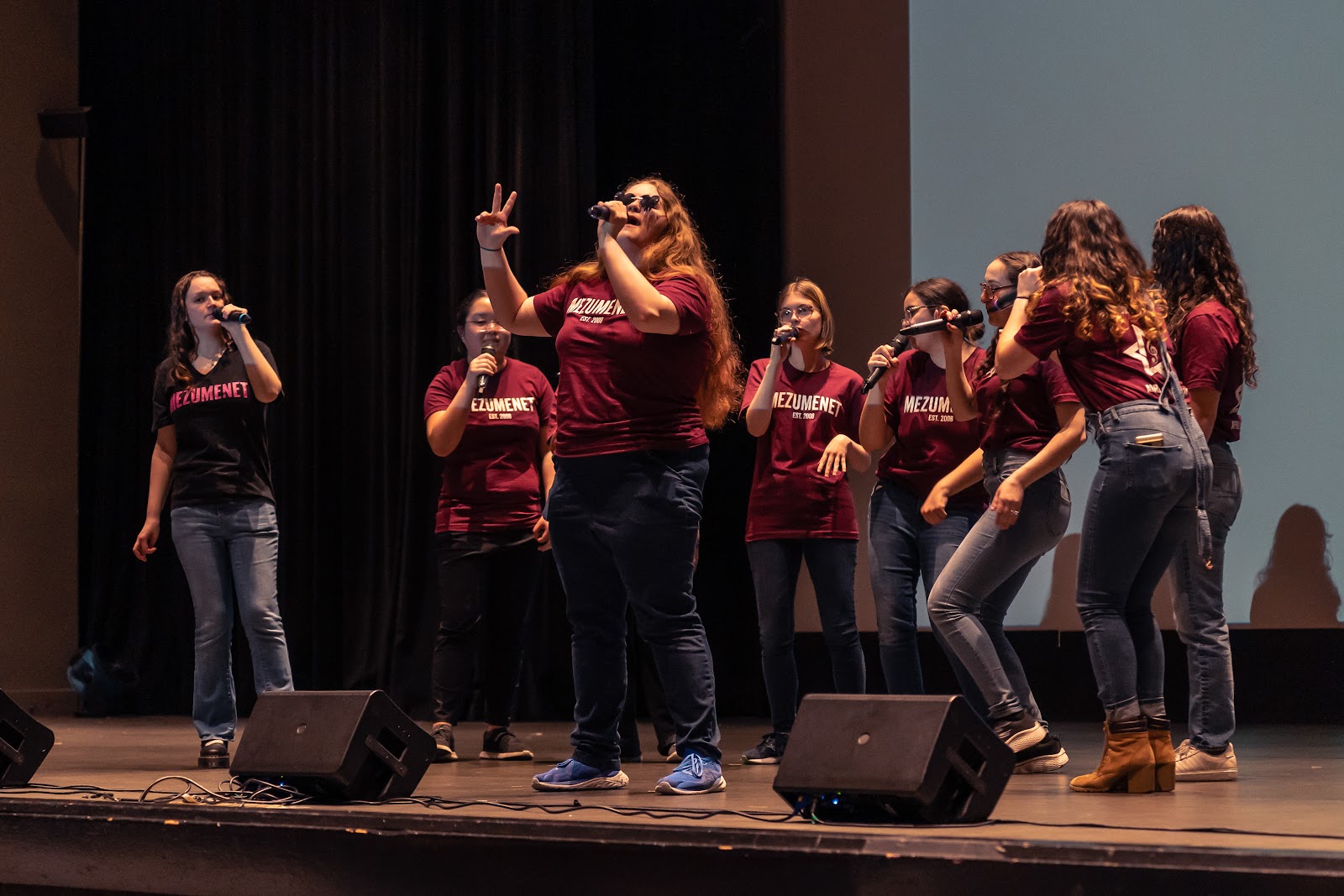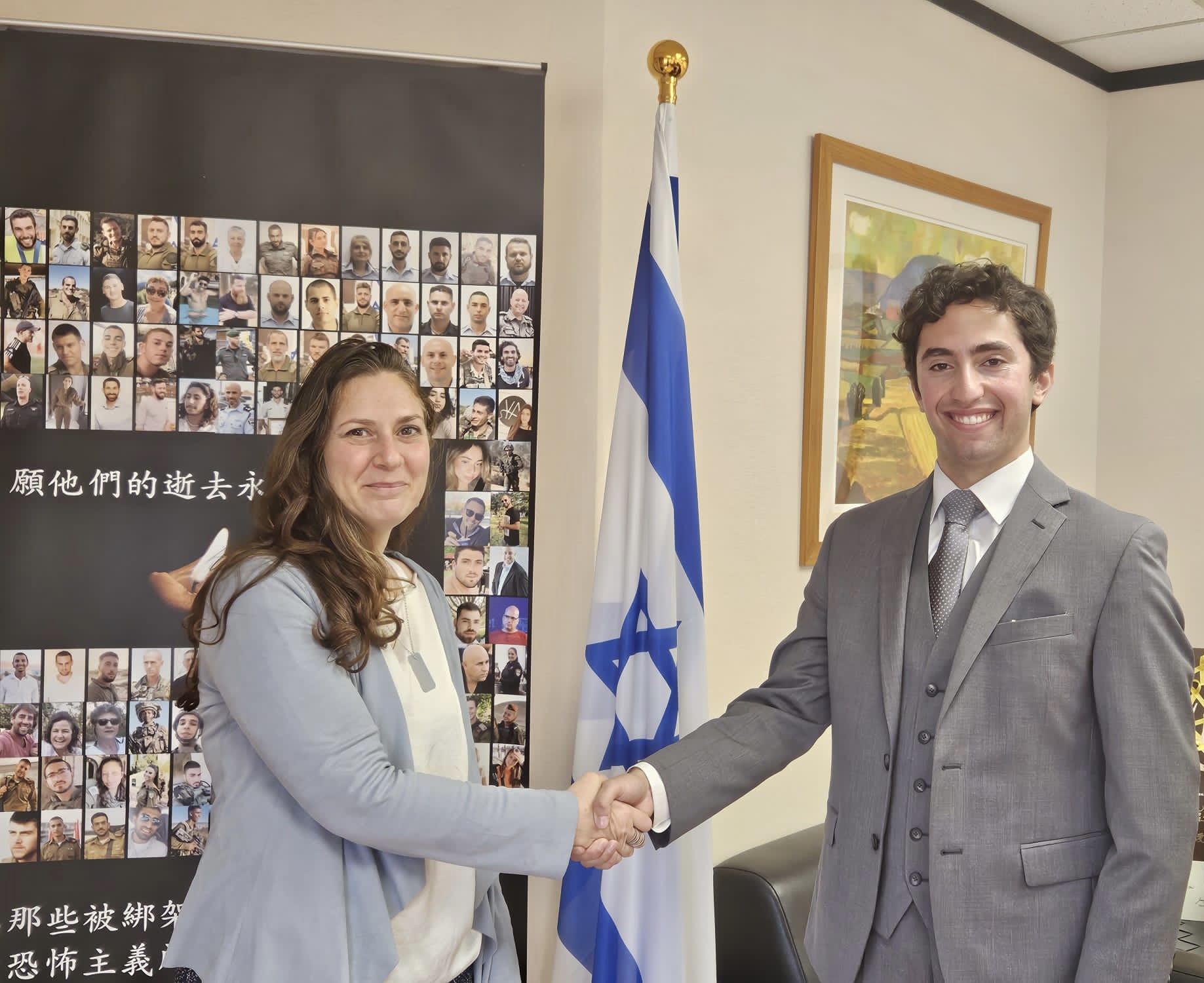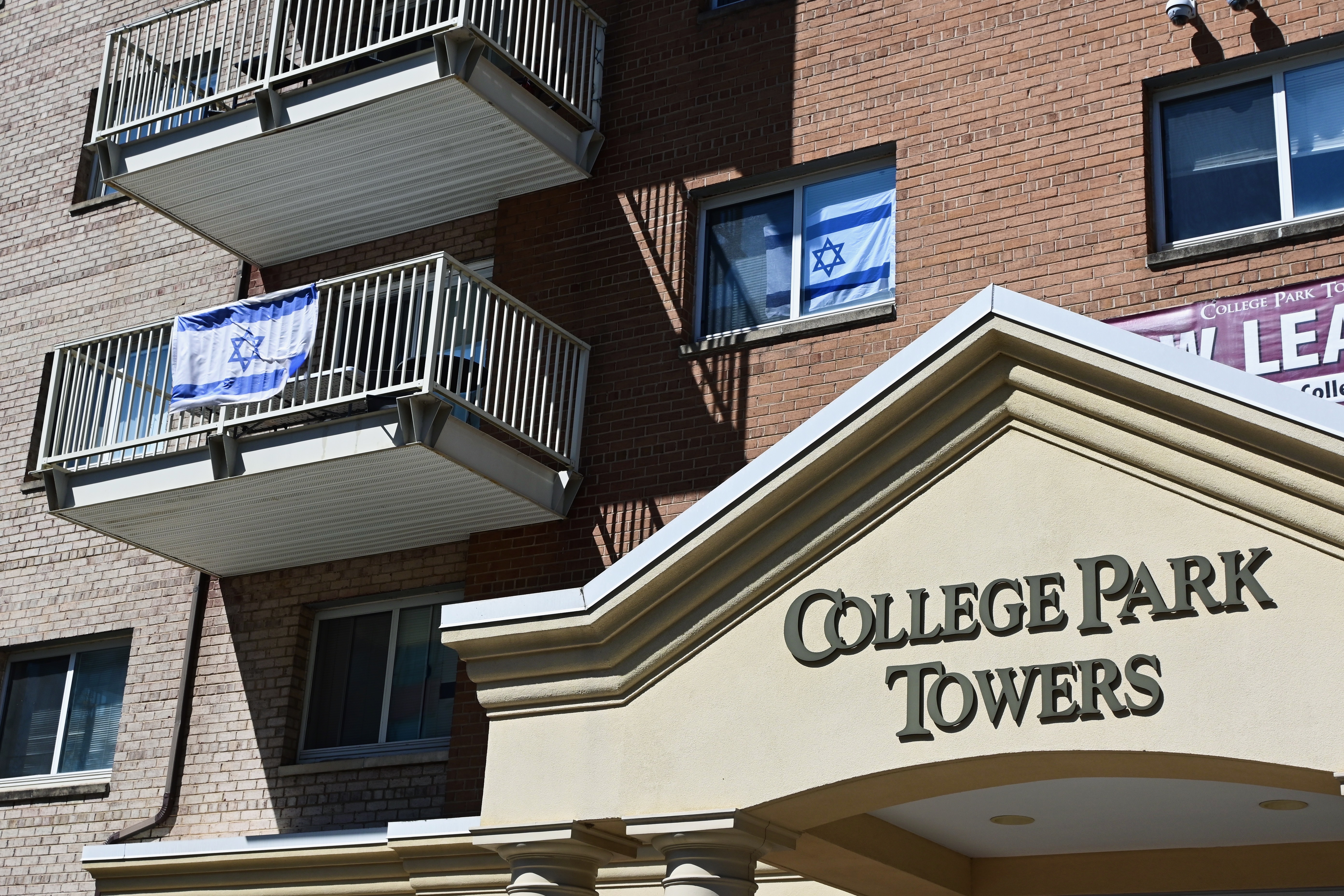
By Thomas Hindle
For Mitzpeh
@Thomas_Hindle_
The conflict between Israel and Palestine is long-lasting, and has formed divides all over the globe. To college students, it’s an issue from afar, but an organization named Roots is aiming to change that. The group, founded in 2014, brings Palestinians and Israelis together to reconcile their differences and discuss how they can approach peace. The organization sent two speakers, an Orthodox rabbi and a former palestinian activist, to participate in an open dialogue Monday in front of students at this university.
Hanan Schlesinger is an American Orthodox rabbi and has been a member of Roots since 2014. He moved to Judea at 20, spending time in the tumultuous area and noting the “tremendous fear and trauma” between Jews and Muslims. His speaking partner, Ali Abu Awwad, is native to Palestine, and grew up in the conflict. The two are currently on a tour of the U.S., spreading their message of peace.
Terps for Israel, J Street UMD, Maryland Discourse, Hillel and Kedma hosted the event, held in the Edward St. John’s Teaching & Learning Center. Before the two speakers told their stories, Terps for Israel President Jenn Miller addressed the packed room, stressing a message of unity.
“It is more important than ever to bring the campus together on issues that divide us,” Miller said.
Schlesinger spoke first, immediately establishing his identity as a Jew, but dismissing the idea that the conflict in the West Bank is related to religion
“When I talk about myself as a Jew, I’m not talking about a religion. I’m talking about peoplehood,” he said.
He also established that the talk was not meant to be political. He asserted that the divide isn’t due to political views, but rather, to a long and complicated history. Schlesinger described it as a conflict based on clashing identities.
“I believe that that the strength of my identity has blinded me in my own life. It prevented me from seeing another story, the Palestinian story,” he said.
After discussing his early life and original experiences after his move, Schlesinger talked about the early manifestations of his peace efforts. After spending most of his life ignoring Palestinians, he realized it was time to confront the unfamiliar group. He started attending meetings between Palestinians and Jews, and gradually grew used to a group he had never interacted with. He was inspired by a young boy who had attended a Seeds of Peace camp in Maine. The summer-long camps serve as a way of bringing teenagers of different religions together.
“I didn’t know if I could believe what he was saying, because it blew in the face of everything I know,” Schlesinger said.
Schlesinger continued by expressing his beliefs on who has rights to the “tiny sliver of land that both Palestinians and Israelis call home.” He started by saying that he firmly believes that both Israelis and Palestinians belong in the land they fight over.
“We all live with a hubris of exclusivity. That means we believe that our story is the truth and the only truth. It’s not,” he said.
He pointed out that both sides have their own identities, and are very reluctant to accept the identities of others. He offered a simplified solution.
“We have to listen until it hurts,” Schlesinger said.
Students were impressed with the rabbi’s words, even those who align themselves with the Palestinian argument.
“I have more of a bias for the Palestine struggle for justice… I thought the Rabbi Hanan’s perspective on being [in] proximity to Palestinians as well as confronting his own racism made him a very compelling figure,” said junior history major Adam Fairchild.
Awwad spoke next. As expected, his narrative was a very different one to that of Schlesinger. He described his rough upbringing, discussing how his childhood affected his attitude toward Jews.
“Fear cannot be an option when you’re a child there; you can’t be afraid… Because of this fear, I grew up hating Israelis,” Awwad said.
After a Jewish doctor saved his uncle, Awwad was forced to confront his preconceptions and upbringing. He struggled with the fact that someone he was raised to hate openly helped him.
“For a while, I couldn’t decide who was human and who was not,” Awwad said.
Like Schlesinger, Awwad came to the realization that the conflict is not about religion, but identity. He noted that the two religions share the same history and same prophet, and therefore agree fundamentally on religious issues. Unlike Schlesinger, Awwad asserted the conversation should be about human rights.
“Before you talk about peace, or to do peace, talk about your rights. I have the right to have my freedom. I have the right to feel safe in my house,” he said.
Awwad pointed out that once rights can be agreed on, peace is possible. He acknowledged that preconceptions of Israelis from Palestinians makes agreeing on rights incredibly difficult. He explained that his sense of honesty made him realize that cooperation is essential.
“My identity as a Palestinian is that I should always be honest and express my opinion. My opinion is that my identity is the whole land. If an Israeli came to me, he would say the same,” Awwad said.
He concluded his argument by explaining that the problem has to be confronted, because it won’t simply go away.
“Nobody’s going anywhere. You won’t wake up the next day and see the other side disappear,” Awwad said.
After each speaker presented their cases individually, the two participated in a brief question-and-answer session together. Throughout the session, they repeatedly stressed that there is no immediate solution to the conflict.
“Roots is not a political movement, but we are aware that there has to be some kind of solution. We are preparing the groundwork for a future political settlement. Any settlement signed today wouldn’t be worth the paper it was written on,” Schlesinger said.
While some students found the talk convincing, others were left dissatisfied with the lack of real solutions presented.
“Not to sound pessimistic, but the talk, though it showcased two brilliant speakers who were themselves a testament to both sides’ ability to engage in dialogue, did little to suggest what I would consider realistic solutions to the problem, short or long term,” freshman history major Graham Scheper said.
Other students disagreed, feeling more optimistic.
“I’m thinking that doing these activities and bringing the next generation of Israelis and Palestinians together… is a really amazing thing. I’m feeling more optimistic after hearing about Roots,” sophomore business major Emma Khasin said.




